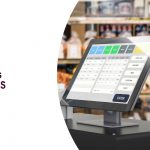Personalize Your Retail Store
The idea that a personalized one-on-one experience can increase sales and influence consumer behavior has been circling throughout the business industry. Personalizing retail shopping leads to better experiences, more word-of-mouth referrals and increased customer loyalty.
Retail businesses don’t need a sophisticated strategy or a huge budget to create a personalized shopping experience. You can use a broad range of information—like purchase history, browsing history, hobbies, interests, events, or preferences—to tailor some aspect of the shopping experience for a customer.
Let’s look at the various ways you can successfully personalize the in-store experience.
Collect The Right Data
Personalization relies on data, so you’ll need to collect pertinent information before you can start.
First, audit what you already know. Look at your customer profiles and see what basic identifying information you have. Build customer profiles with information from all your data sources—email list, point-of-sale (POS), in-store sign-up sheets, and whatever else you use to store customer info. POS systems in Pakistan are unique and efficient at storing product information, so that retailers may collect the necessary data effectively. Make note of:
- Name
- Address
- Age
- Phone number
- Birthday
- How they heard about your store
It is important to research further and look at transactional data. This includes a customers’ purchase history, which you can add their customer profile, as well as overall sales trends.
For example, see which products shoppers frequently purchase together or successively. Your POS should be able to tell you these types of insights to help inform your personalization strategy. Oscar POS offers a systematic approach to data collection that steps up your sales. Drive customer acquisition, increase average purchasing size, and get updates on opportunities for revenue growth; all this helps your retail business increase its profits efficiently. It is important for your business to have effective methods of data collection through POS systems, emails etc so that you have a chance to create an improved personalized retail experience.
Take An Omnichannel Approach
Retailers who have more control over their entire information systems can easily leverage additional data to create personalized experiences. Though the in-store shopping experience is important, it’s equally important to connect the dots between what’s going on offline and online. Today’s consumers interact with brands on multiple channels—brick-and-mortar stores being just one aspect of the larger experience.
It’s critical to sync customer history between online and offline channels. Though you might see ecommerce and physical retail as two distinct channels and departments, it’s all the same in the eyes of the customer. This idea of unified commerce—a fully integrated online and offline retail brand experience—allows retailers to put the data together and paint a bigger picture based on all inputs.
That’s why it’s important to find a POS that automatically centralizes and syncs offline and online purchase history. POS systems in Pakistan are equipped to offer all the relevant features that are required to run a successful omni-channel approach. If a customer needs to replace a certain product, originally purchased in your store some time ago, they should be able to immediately find out what variant they bought, down to the size, color, and style. This is only possible when all data is in one place.
Customize Your Promotions
Blanketed discounts have their time and place, but when it comes to retail personalization, retailers are better served tailoring these incentives. A straightforward way to personalize offers is to refer back to the customer data you already have.
You can also personalize promotions based on customer history: purchases, event attendance, online behavior, and more.
Empower Your Employees
The best solution is to equip staff with a mobile or tablet POS so they can quickly access customer profiles and purchase histories across channels to deliver this one-to-one experience customers have come to expect. When training a retail associate, equip them with the tools and knowledge they need to be able to confidently speak about products, and emphasize the importance of connecting with customers authentically.
A simple way your employees can make more informed recommendations includes:
- Analyzing POS data: Determine which products are frequently purchased during the same transaction. Once your staff has that data on hand, they can make recommendations in person while customers shop or when they check out. Assuming your POS is integrated with your online store, your staff should be able to access all customer history across sales channels for a holistic view.
Drive Traffic To Your Store via Email and SMS
Omnichannel marketing is key to personalized in-store experiences, too. Where email is a standard practice for retailers, consider getting more personal and connecting with customers via text or by phone to remind them to visit your store. Even if you’re not launching sophisticated marketing campaigns, you should always tailor your conversations based on customer behavior.
These segments could be based on event attendance, product categories, and any other shared characteristics you notice among your customer base.
Other instances to leverage email and SMS to create more personalized in-store experiences include:
- Back-in-stock/out-of-stock reminders: If a customer visits your store in search of a specific product and you don’t have it, train associates to note in the POS system to add them to the back-in-stock notification campaigns. Likewise, if a product a customer frequently purchases or expressed interest in is going out of stock, send a targeted, automated campaign.
- Price changes: Notify customers when products go on sale. Create segments based on product categories or purchase history to target campaigns and product recommendations to different customer groups.
- Event notifications: If you have an event series or plan to host future events similar to previous ones, create a segment for event-interested shoppers. Send them emails and SMS messages about upcoming events your store is involved with.
- Flash/VIP sales: Identify top spenders and send them exclusive offers and discounts. Consider hosting and promoting extended VIP shopping hours or VIP-only sales.








